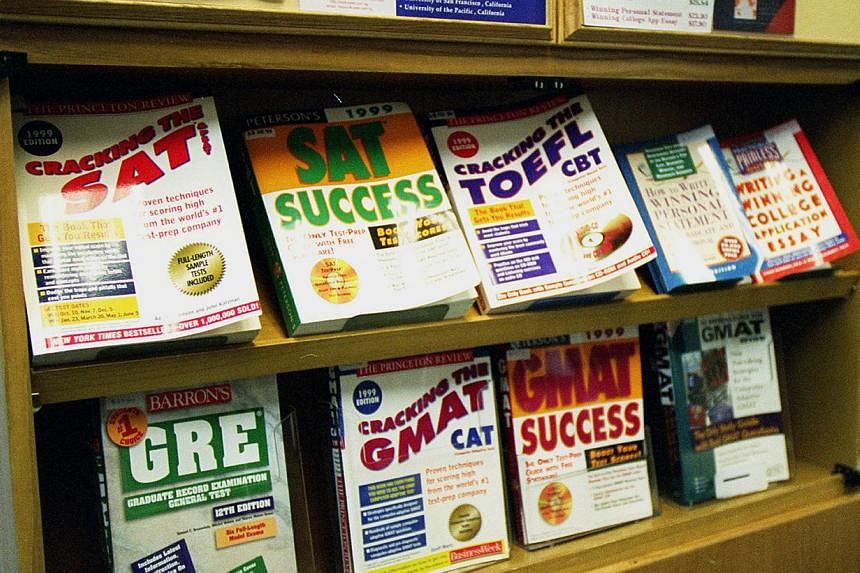HONG KONG (Reuters) - Test preparation companies see a golden opportunity to expand in Asia, after a series of cheating scandals on the US college entrance exam SAT pushed more students in the region to take its lesser-known rival, the American College Test (ACT).
Last month, scores were withheld for thousands of students across Asia who took the SAT, or Scholastic Aptitude Test, in January, the fourth consecutive exam in as many months to see widespread delays because of alleged cheating.
"Students are aware of the cheating scandals and nervous that their scores will be cancelled after spending so many hours preparing for the examination," said Edward Dunnigan, director of the SAT and ACT programmes at New Pathway Education, which has centres in China and New York.
College testing and admissions is big business in Asia, and growing: 150,000 students from China and South Korea went to US colleges last year, 40 per cent of all international undergraduates in America, according to the Institute of International Education. The number of Chinese students in US colleges grew 18 percent.
The scandal over the SAT scores is the latest factor spurring demand for the ACT, which has already seen an increase in test takers from China and South Korea in recent years. With the SAT's upcoming redesign in 2016, students have been gravitating towards the ACT, for which there are abundant preparatory materials and retired exams that they can practise on.
Exam prep companies with existing ACT curriculums are scrambling to take advantage of the test's increased popularity. In Seoul's wealthy Gangnam district, a branch of the Princeton Review is offering ACT courses for the first time this summer.
The company has also added ACT courses throughout China and South Korea, according to vice president of international programmes Steven Chou, who said demand for ACT prep has grown in all regions, not just the Asia-Pacific.
Kaplan, a division of Graham Holdings Co, says its international ACT business has expanded more than 15 per cent in the past year. New Oriental Education & Technology Group Inc, which tutors 2.5 million students for various tests throughout China, says its ACT business jumped 220 percent from 2013 to 2014.
The College Board, which owns the SAT, declined to provide last year's growth figures for the exam, though spokesman Zach Goldberg said its registrations have doubled in Asia over the past five years.
FIGHTING CHEATS
While the ACT is more popular in the United States, the SAT has dominated the market abroad. In Korea and China, an industry of "cram schools" have built up around the SAT, where students spend hundreds of hours taking and retaking practice tests.
Competition is fierce, and some companies illegally obtain unpublished tests that have been previously used in America, giving their students the edge when the exam is recycled in Asia.
Stress levels rose even higher when the College Board held back from releasing January's SAT scores. It said in December that some people and organisations had "illegally obtained and shared test materials".
The SAT has a "responsibility to deliver test scores with integrity to colleges and universities. A vital part of that responsibility is identifying, stopping and mitigating against security breaches," said the College Board's Goldberg.
Some test prep tutors warned that the ACT is just as vulnerable to cheating scandals because it also recycles tests previously administered in the United States.
"Until they are ready financially to make new tests every time, they are going to give students the incentive and ability to cheat," said Duc Luu, CEO and founder of The Edge, which provides test prep and college admissions counselling in Hong Kong and China.

